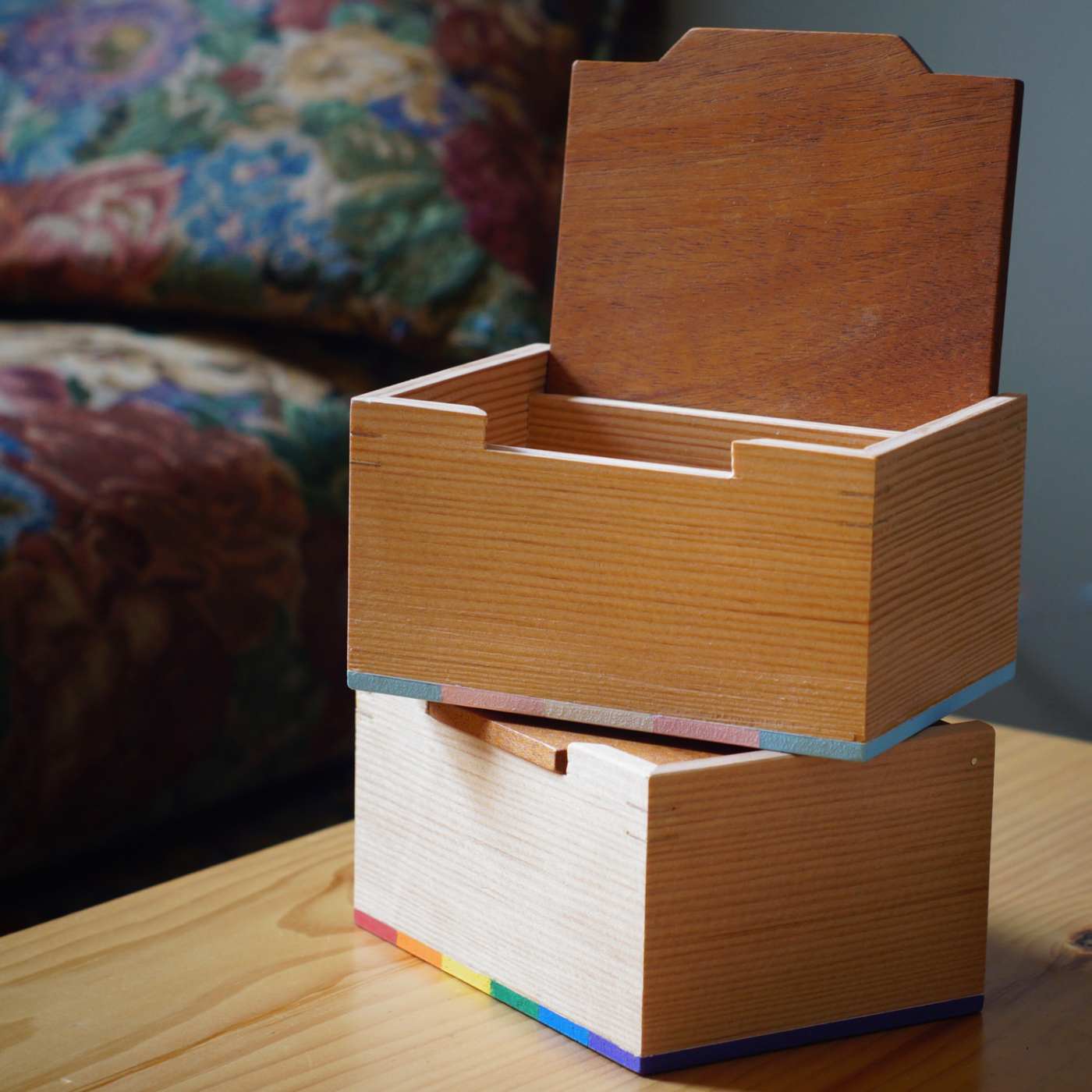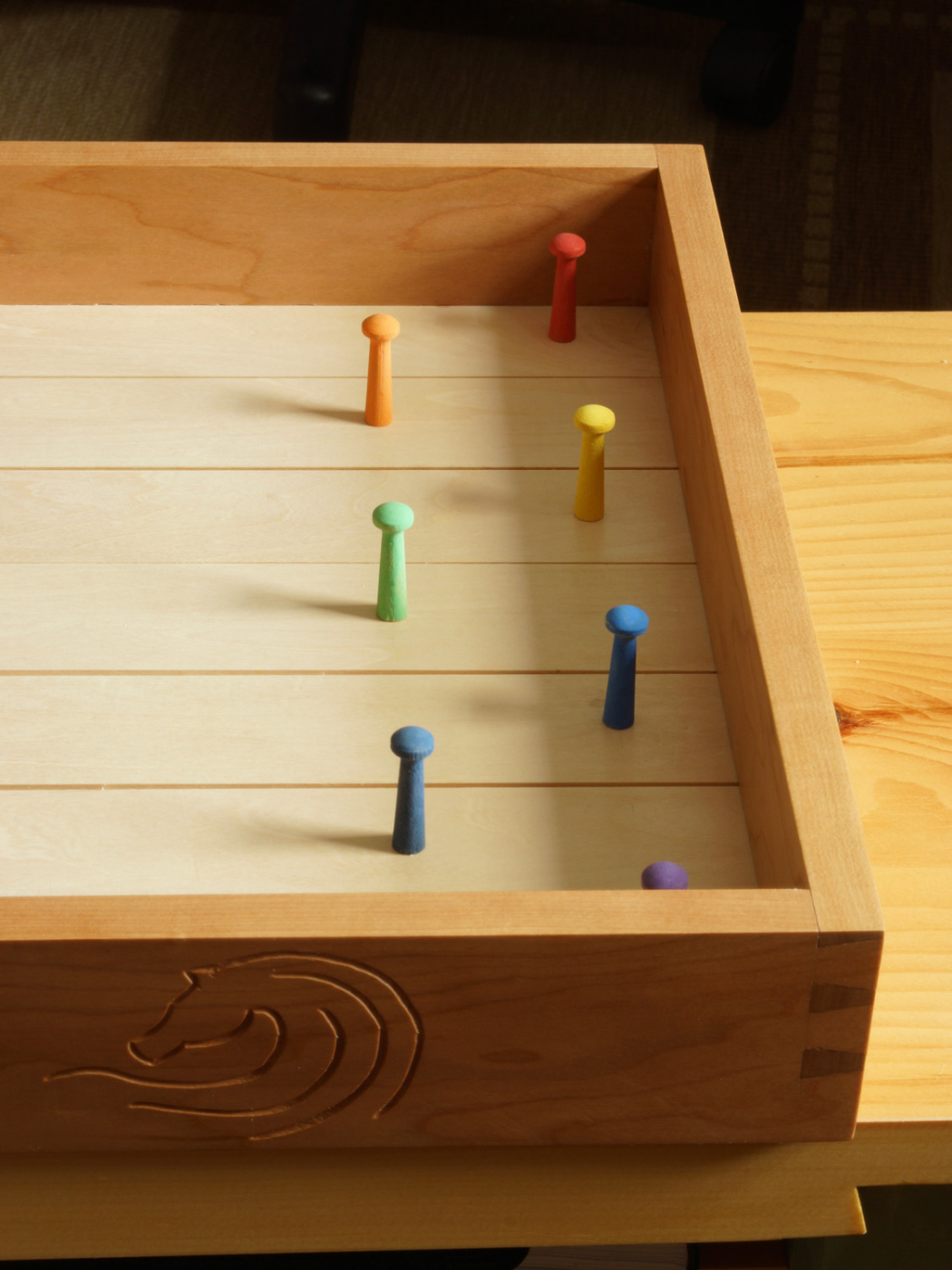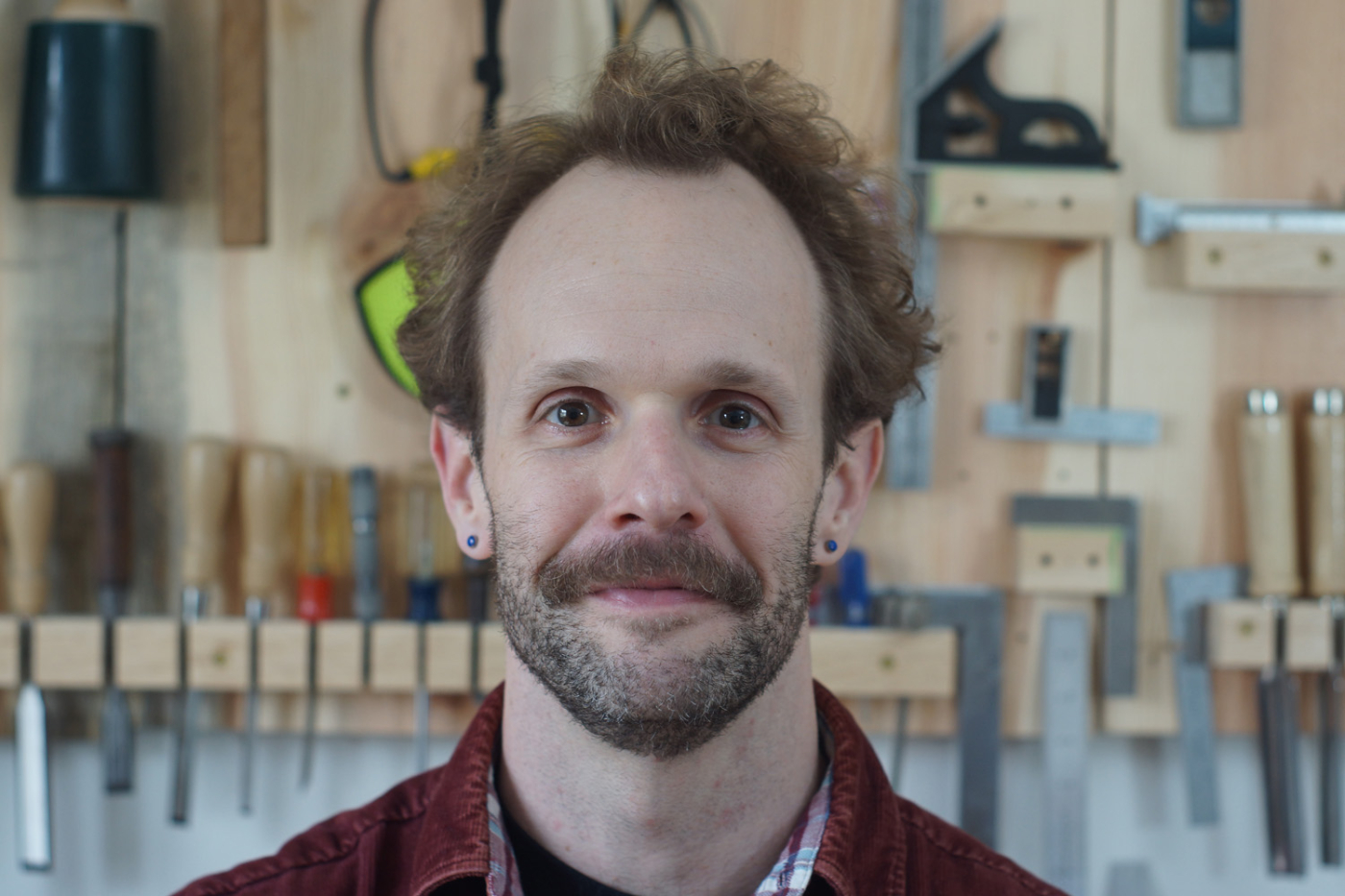We may receive a commission when you use our affiliate links. However, this does not impact our recommendations.
 We’re interviewing makers from across the country. Today we’re featuring Barry Dima, a woodworker from North Dakota.
We’re interviewing makers from across the country. Today we’re featuring Barry Dima, a woodworker from North Dakota.
How did you get started woodworking? Who were your mentors?
My dad was Norm Abrams devotee and my mom’s dad was a jack of all trades, so tools and wood were always in the air for me growing up. Plus my mom’s an artist who always encouraged creativity. But it wasn’t until I got an apartment of my own that I started my own projects. I think a spice rack was first. The wood (particle board) was salvaged from an IKEA desk someone in my apartment building had thrown out. The satisfaction was immediate, so projects grew from there—as did my desire to learn from those better than me.
 My mentors come from two personal eras. First were all parasocial via print and the Internet—Peter Follansbee, Chris Schwarz, Toshio Odate, Roy Underhill, and certain users on forums and an old Facebook group. The second started when I joined Fine Woodworking, where I was an associate editor from 2017–23. Mike Pekovich is an obvious choice, from his careful aesthetic choices to his brilliant construction methods. Mike’s also an example of what the magazine gave me as a whole: personal proximity to many kinds of greatness that encouraged me to consistently aim higher. I took something not only from every author I worked with, but also my colleagues at FWW, who put tremendous care and energy into the magazine and website. I was spoiled with mentors. I even got to work with Follansbee a few times, which was enormous for me. I’m not sure I’d be a woodworker without him.
My mentors come from two personal eras. First were all parasocial via print and the Internet—Peter Follansbee, Chris Schwarz, Toshio Odate, Roy Underhill, and certain users on forums and an old Facebook group. The second started when I joined Fine Woodworking, where I was an associate editor from 2017–23. Mike Pekovich is an obvious choice, from his careful aesthetic choices to his brilliant construction methods. Mike’s also an example of what the magazine gave me as a whole: personal proximity to many kinds of greatness that encouraged me to consistently aim higher. I took something not only from every author I worked with, but also my colleagues at FWW, who put tremendous care and energy into the magazine and website. I was spoiled with mentors. I even got to work with Follansbee a few times, which was enormous for me. I’m not sure I’d be a woodworker without him.
 What do you think is your best or favorite work? What kind of work do you do the most?
What do you think is your best or favorite work? What kind of work do you do the most?
I probably most love my clock and a carved box I made for my mom. (The box pulls heavily from a Dave Fisher piece.) They both represent the type of work I do the most, which sits around the intersection of simple, traditional forms; solid wood; low relief carving (probably in the 17th-century England/New England vein); and paint.
 My workbench is high on the list too, especially since it grabbed Pekovich’s attention to became my first project article for FWW. From design to execution, that project was a bear, but so worth it.
My workbench is high on the list too, especially since it grabbed Pekovich’s attention to became my first project article for FWW. From design to execution, that project was a bear, but so worth it.
 What advice would you give to someone that wants to start woodworking or pursue it as a profession?
What advice would you give to someone that wants to start woodworking or pursue it as a profession?
My advice for newbies comes from a lesson I’m painfully relearning myself as I rebuild a shop: you don’t need to buy all the tools right away. Much can be done with a basic tool kit. This kit will be a strong foundation so long as the tools are sharp and tuned, and any jigs for them are accurate. You’ll figure what extra tools or fixtures would be nice as you use your shop, and by then you’ll hopefully have more money.
 What’s your best hands-on tip or woodworking technique?
What’s your best hands-on tip or woodworking technique?
I like figuring out much a piece before I dive in. I often do this in SketchUp, but a full-size drawing of a complex joint or carving helps too. This way I can build before I build—letting me anticipate efficient construction strategies, avoid mishaps, tweak designs, and predetermine dimensions. I’ll even make exploded drawings from the SketchUp file. That’s more time building before I build, and the drawings are a boon at the workbench.

 Is there anyone you’d like to shout-out or recommend we follow? Who inspires you? (Doesn’t have to be woodworking related, either.)
Is there anyone you’d like to shout-out or recommend we follow? Who inspires you? (Doesn’t have to be woodworking related, either.)
Aside from my mentors, who all belong in this section, my inspiration probably begins with Aspen Golann. Her skill, joy, creativity, and commitment to social justice are vitalizing on their own. But they’re not on their own with Aspen; she combines them explosively. Anything I’d ever want to do, she already crushes.
 I’m also drawn to makers whose outstanding work still clearly displays fun—Tim Coleman, Larissa Huff, Garrett Hack, Dave Fisher, and Danielle Rose Byrd. Next are Steve Latta and Will Neptune, tacticians and teachers who make Occam’s razor look dull. And I can’t forget about Kathryn Sullivan, who works in a traditional mode but with a very immediate sense of justice. Dopeness all the way down with all of them.
I’m also drawn to makers whose outstanding work still clearly displays fun—Tim Coleman, Larissa Huff, Garrett Hack, Dave Fisher, and Danielle Rose Byrd. Next are Steve Latta and Will Neptune, tacticians and teachers who make Occam’s razor look dull. And I can’t forget about Kathryn Sullivan, who works in a traditional mode but with a very immediate sense of justice. Dopeness all the way down with all of them.
See more of Barry’s work on Instagram @bnmd_ig.


 This interview was lightly edited for clarity.
This interview was lightly edited for clarity.
Here are some supplies and tools we find essential in our everyday work around the shop. We may receive a commission from sales referred by our links; however, we have carefully selected these products for their usefulness and quality.








